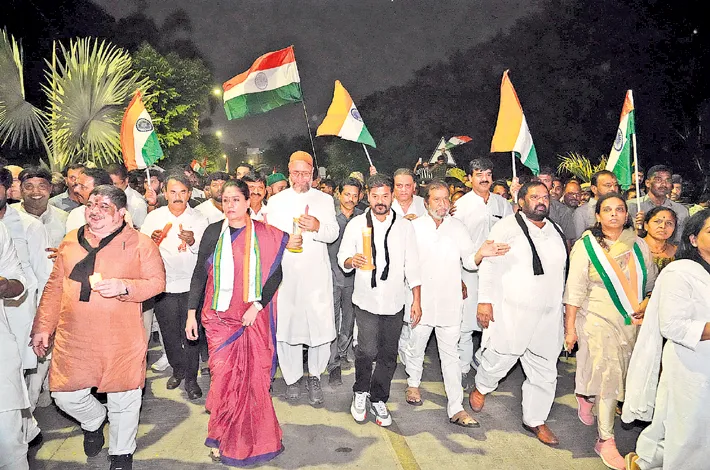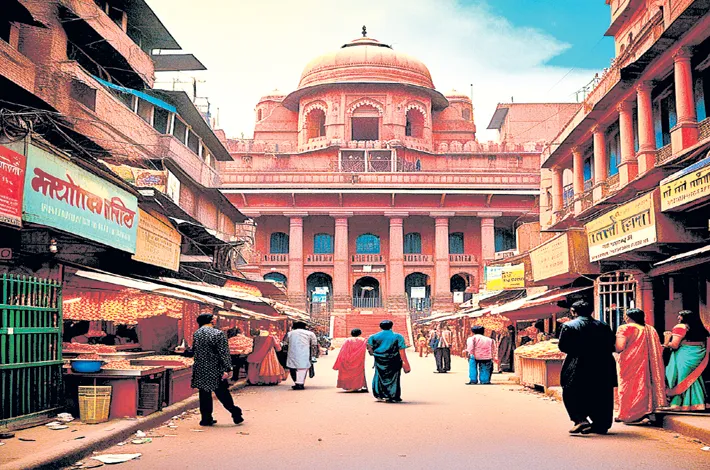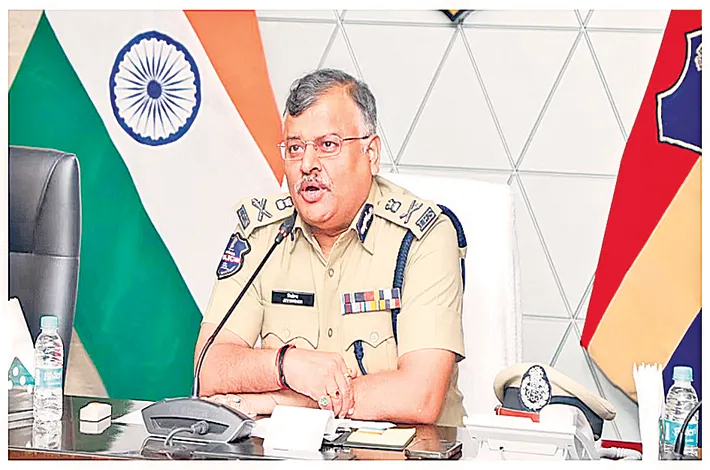India stands united against Pakistan terror attack
26-04-2025 12:00:00 AM

Cutting across communities, regions, and political lines, people in India rose in unison condemning the horrific attack
Political unity was equally striking. An all-party meeting chaired by Defence Minister Rajnath Singh on April 24 observed a two-minute silence for the victims
metro india news I hyderabad
In a rare display of unity, thousands of Muslims in Hyderabad wore black bands during Friday prayers to condemn the Pak terror attack in Pahalgam in which 26 lives were lost. Asaduddin Owaisi, president of the All India Majlis-e-Ittehadul Muslimeen (AIMIM), appealed to Muslims to wear black bands during Friday prayers to condemn the attack.
In a video posted on X, Owaisi said, “Pakistan’s Lashkar-e-Taiba terrorists have taken the lives of 26 tourists in Pahalgam. This act of terror is a crime against humanity, and we send a united message of condemnation.” His call resonated widely, with mosques across Hyderabad and other cities observing the gesture.
Not just in Hyderabad but the whole country rose in unison cutting across communities, regions, and political lines—to condemn the horrific terror attack executed by Pakistan-based terrorists linked to The Resistance Front (TRF), an offshoot of Lashkar-e-Taiba. Notably, Muslim leaders and communities across the country have been at the forefront of condemning the attack, rejecting terrorism, and supporting the government’s decisive measures against Pakistan.
The assault in Baisaran meadow, a picturesque tourist spot in Jammu and Kashmir’s Anantnag district, was one of the deadliest in the region since the 2019 Pulwama attack. Gunmen opened fire indiscriminately, killing 25 Indian citizens and one Nepalese national, shattering the illusion of calm in the Valley. Indian security agencies swiftly identified three Pakistani nationals—Asif Fauji, Suleman Shah, and Abu Talha—as suspects, with intelligence pointing to logistical support from safe houses in Muzaffarabad and Karachi. The attack, meticulously planned, was claimed by TRF as retaliation for India’s post-2019 Kashmir policies, particularly the abrogation of Article 370.
Muslim leaders across India were quick to denounce the attack, emphasizing that terrorism has no place in Islam or humanity. Syed Ahmad Bukhari, the Shahi Imam of Delhi’s Jama Masjid, delivered a stirring condemnation during his Friday address on April 25. “The killing of innocents is a sin,” he said, urging worshippers to wear black armbands in protest against the Pahalgam massacre. “Islam rejects such acts, and we stand united with the nation in this hour of grief.” Bukhari also expressed sorrow over recent communal incidents, calling for unity and peace.
The All India Muslim Personal Law Board (AIMPLB) also condemned the attack and paused its campaign against amendments to the Waqf Act for three days as a mark of solidarity with the victims’ families. “We are with the nation in mourning this tragedy,” the AIMPLB stated, urging communities to resist divisive forces. These actions underscored the Muslim community’s unequivocal rejection of terrorism and their alignment with the national sentiment.
Across India, protests and candlelight vigils reflected the collective anguish and resolve. In Srinagar, Peoples Democratic Party chief Mehbooba Mufti led a march carrying placards that read, “Killing innocents is an act of terror” and “This is an attack on all of us.” Local residents in Sopore, Ganderbal, and Bandipora held candlelight marches, with Kashmiris like Umar Nazir Tibetbaqan stating, “We stand with the country in this hour of grief.” In Delhi, over 500 people protested near the Pakistan High Commission, demanding action against Pakistan’s support for terrorism. The Bharatiya Janata Party (BJP) and social organizations like the Anti-Terror Action Forum joined, with protesters calling for a repeat of India’s surgical strikes.
Political unity was equally striking. An all-party meeting chaired by Defence Minister Rajnath Singh on April 24 observed a two-minute silence for the victims. Leaders from the Congress, National Conference, and other opposition parties pledged full support to the government. Rahul Gandhi, cutting short a U.S. visit, said, “The opposition stands united with the government in taking any action against this barbaric violence.” Jammu and Kashmir Chief Minister Omar Abdullah, addressing an all-party meeting in Srinagar, called for calm and unity, appealing to protect Kashmiri students and citizens nationwide.
Muslim-majority nations, including Qatar, Iraq, and the United Arab Emirates, also backed India, condemning the attack and expressing solidarity. Iraq’s Ministry of Foreign Affairs stated, “We stand with India against all forms of terrorism and violence,” while Qatar reiterated its stance against criminal acts. In Jeddah, Sheikh Mohammed bin Abdulkarim Al-Issa of the Muslim World League met PM Modi and condemned the attack, reinforcing global Muslim support for India’s fight against terrorism.
The public’s response was marked by grief and defiance. In Kolkata, Indore, and Ranchi, candlelight vigils honored the victims, including Sushil Nathaniel from Indore and Shahid Syed Adil Hussain Shah, a Kashmiri who died fighting a terrorist to save tourists. Social media platforms saw an outpouring of condemnation, with hashtags like #PahalgamTerrorAttack trending. However, isolated incidents, such as a controversial post in Jharkhand praising the attack, were swiftly addressed, with the individual arrested.
The Central Government’s measures, particularly the suspension of the Indus Waters Treaty, have escalated tensions with Pakistan, which called it an “act of war.” Yet, India’s unified stance—bolstered by its Muslim leaders and citizens—sends a clear message: terrorism will not fracture the nation’s spirit. As security forces continue a manhunt for the attackers, with a Rs 20 lakh bounty announced, India stands resolute, drawing strength from its diversity and shared commitment to justice.
Everyone who believes in humanity is with us.” From the mosques of Delhi to the streets of Srinagar, India’s response to the Pahalgam attack is a testament to its unbreakable unity
Narendra Modi Prime Minister of India








